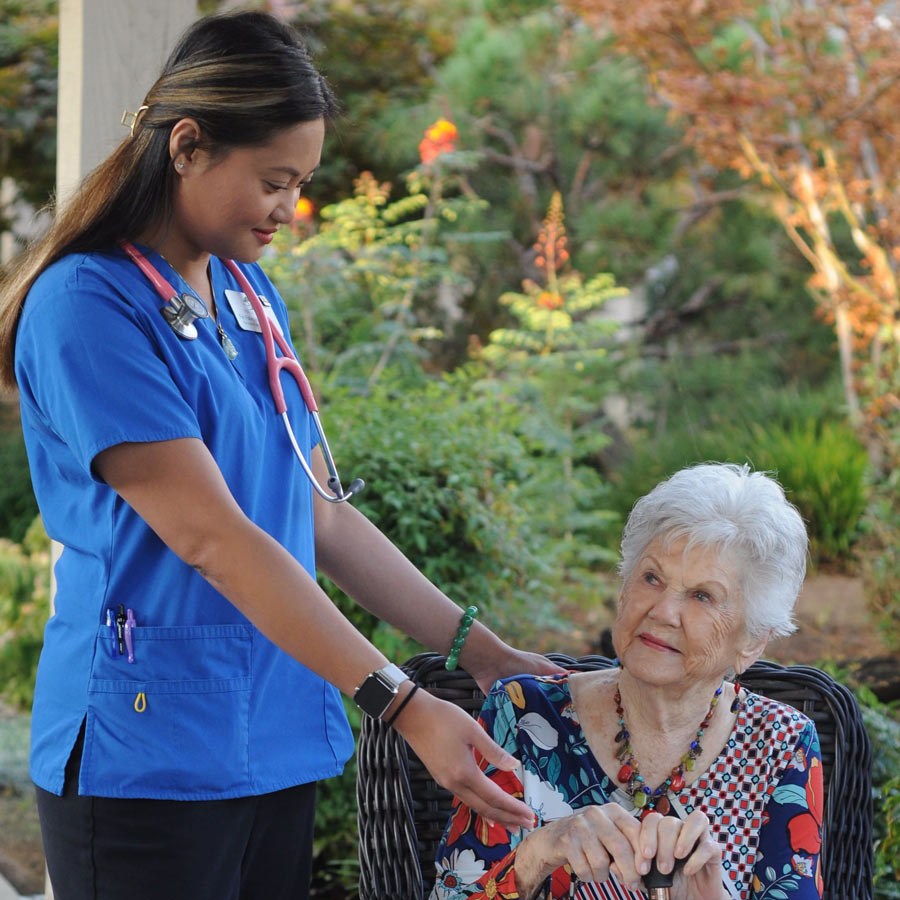When a loved one moves into a memory care facility, the role of the family members who previously cared for them changes. That change can be strange and difficult. Here are a few tips on how to shift your focus and become a great advocate for your older relative and their care plan.
What is advocacy about?
A caregiver is someone who directly provides for the physical needs of the person in question, whereas an advocate’s role is to help them understand the resources available to them and ensure that they get the treatment they deserve and level of care they require. It’s the difference between performing a task yourself and delegating it to an expert. In many ways, when you bring a parent or other older loved one to a memory care community, you’re entering into a partnership.
First, Know Your Resources
There are many resources online to help both seniors and their care partners, from the AARP to the National Council on Aging (NCOA) to the National Institute on Aging. Explore these resources. You likely have many questions already, and you will probably have more after you know more about memory care. Consider joining an email list or subscribing to a blog like this one.
Second, Read the Fine Print
Take the time to review the paperwork. An unfortunate reality is that seniors (particularly those with cognitive impairment) are a favorite target for scammers. But the good news is you don’t need to be a contract lawyer to help protect your loved one. Familiarize yourself with their normal expenses so you can more easily recognize anything suspicious that crops up. Advocates of those struggling with dementia or Alzheimer’s should take steps to gain power of attorney and consider establishing a trust to protect their loved one’s assets. Doing so will go a long way towards alleviating the stress that comes with managing their finances.
Third, Remain Active in the Life of Your Loved One
If all of this sounds more like being a lawyer or accountant for your parent or grandparent than being family, don’t worry; one of the most important parts of advocacy is regular visits and active participation in their life. Come visit them in their memory care facility as often as you can, not just to enjoy their company but also to check on their mood, diet, physical health, and overall care.
Get to know the people caring for them and bring up your concerns with them. It’s a good idea to come prepared with questions when you visit. Research suggests a correlation between loneliness and negative health outcomes for seniors, so the more face-to-face time they have with you, the better. https://www.nia.nih.gov/news/social-isolation-loneliness-older-people-pose-health-risks

